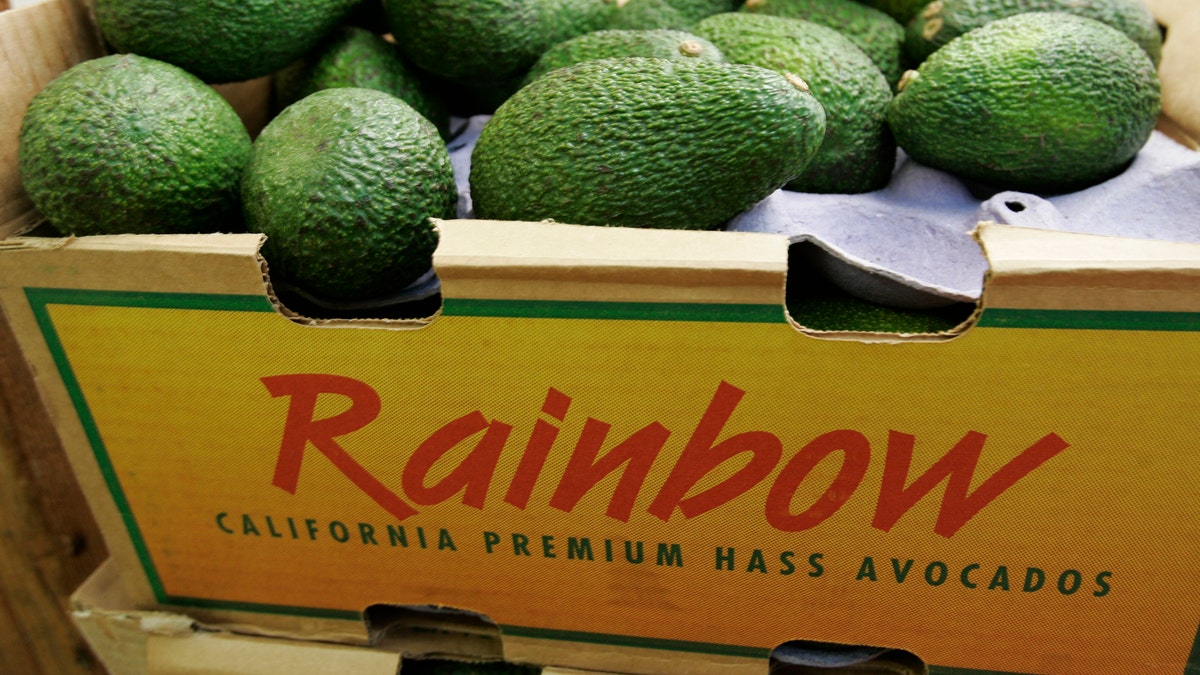
FILE - In this Jan. 17, 2007 photo, California grown avocados are seen on display at a market in Mountain View, Calif. (AP)
The start of a new year means millions of Americans making resolutions to lead a healthier lifestyle. Now new research from the American Heart Association says the answer to getting healthy could be as easy as eating more avocados.
The study, conducted by researchers at Pennsylvania State University, analyzed the effect avocados had on cardiovascular risk factors by replacing saturated fatty acids from an average American diet with unsaturated fatty acids from avocados.
Forty-five patients between 21 and 70 years old spent two weeks consuming an average American diet of 34 percent of calories from fat, 51 percent carbohydrates and 16 percent protein before they were put on one of three different cholesterol-lowering diets for 5 weeks.
The diets included a lower fat diet without avocado, a moderate-fat diet without avocado and a moderate-fat diet with one avocado per day.
Researchers found that compared to the baseline average American diet, low-density lipoprotein (LDL) also known as 'bad cholesterol’ was 13.5 mg/dL lower after consuming the moderate fat diet that included avocado – a significantly lower level than those consuming less fat without a daily avocado in their diet. According to the Mayo Clinic, an LDL level below 130 mg/dL is considered healthy.
“Current dietary guidelines recommend substituting unsaturated fatty acids for saturated fatty acids to decrease LDL, a major risk factor for cardiovascular disease. Avocados are a nutrient-rich source of unsaturated fatty acids,” Dr. Penny Kris-Etherton, senior study author and Chair of the American Heart Association’s Nutrition Committee told FoxNews.com.
In addition to lowering cholesterol, blood measurements taken during the study showed lower total cholesterol, triglycerides, small dense LDL and non-HDL cholesterol in patients on the avocado inclusive diet.
Results were consistent in participants that were overweight and obese. The study was designed to achieve weight maintenance, so weight loss was not a factor in the study results
Although researchers are impressed by the findings, Kris-Etherton said it’s important to understand how to consume avocados in healthy ways.
"In the United States avocados are not a mainstream food yet, and they can be expensive, especially at certain times of the year,” she said. “Most people do not really know how to incorporate them in their diet except for making guacamole. But guacamole is typically eaten with corn chips, which are high in calories and sodium.”
She recommends adding avocado to sandwiches, salads, or smoothies. Guacamole can be used as a spread or dip in place of fatty mayonnaise or sour cream.
Kris-Etherton said more research is needed before new nutrition policy recommendations can be made, but in the meantime consumers can reap the health benefits of avocados.
The findings are published in the Journal of the American Heart Association.








































